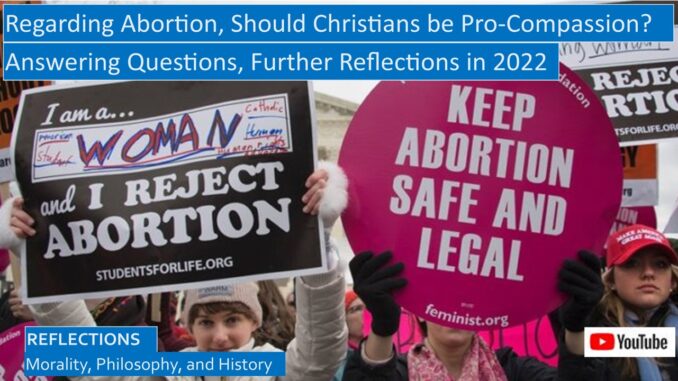
On the issue of abortion, and other moral issues, Should Christians be pro-compassion?
How should we, as Christians, approach moral problems? This is similar to a related question; How should we interpret the Scriptures and Church teaching to guide us to live a godly life? St Augustine, in his seminal work, On Christian Teaching, or On Christian Doctrine, teaches us that “whoever thinks he understands the Holy Scriptures,” “but interprets them in a way that does not build up this two-fold Love of God and love of neighbor, does not truly understand the Scriptures.”
http://www.seekingvirtueandwisdom.com/st-augustine-on-christian-teaching-how-to-read-scripture/ and https://youtu.be/uQCnAJMPoos
How can we interpret the church’s teachings on abortion keeping the two-fold Love of God and neighbor in mind? By being compassionate for our neighbor, rather than being cruel to our neighbor, mocking and sneering at him. Our neighbor is that young woman facing a difficult life decision, who is considering an abortion, and she deserves our compassion, regardless of whether we judge her decision to be moral or immoral, because ultimately Jesus is the ultimate judge, not you or I.
This video: https://youtu.be/ll9wOR0t2yQ
Before we reflect on other questions, let us note that we have two other videos on abortion, one where we read and reflect on the actual Roe v Wade Supreme Court majority and dissenting opinions, and also the actual Dobbs v Jackson opinions, which revokes the Roe v Wade ruling.
YouTube video for this blog: https://youtu.be/ll9wOR0t2yQ
Script with Amazon book links: https://www.slideshare.net/BruceStrom1/should-christians-be-procompassion-abortion-questions-and-reflections
In our Roe v Wade video, we reflect on the ancient and modern history of abortion itself and the Roe v Wade opinion, plus the fascinating life story of Jane Roe. In our companion Roe v Wade blog, we included links for stories of women facing abortion, some who decided against abortion, some who made the difficult choice of abortion. We selected stories from both positions, weeding out stories that seemed manufactured, to encourage compassion for our neighbor.
In our Dobbs video, we reflect on the odd logic of the majority opinion that states that “the right to abortion is not deeply rooted in the Nation’s history and tradition,” which I would agree with. Medicine was so primitive in both the ancient world and in America around the year 1868 that you would have been a fool to support abortion.
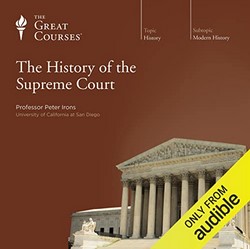
Also, the claim of Justice Alito, author of the majority opinion, that his logic harks back to the Brown v Board of Education decision is equally bizarre, you can listen to this video for my objections, particularly how it appears to only pay lip service to the 14th Amendment on Due Process under the law. We speculate whether the Dobbs case is comparable to the infamous Dred Scott case that sparked the Civil War.
The Supreme Court opinions are written in plain English, you do not need to be a lawyer to read them for yourself. Just skip the technical discussions of jurisprudence and precedents.
Should Christians be compassionate towards a neighbor facing a life crisis event, even when we judge their choice to be immoral?
The best reflection is by asking another question, Do we wish to be compassionate for our neighbor? Or do we wish to usurp Jesus’ job, and be judgmental? Why not ask your neighbor, Why do wish to do this? What problems are you facing in your life?
We do not deny that many young mothers who seek abortion are really being selfish, and that this may be the majority of cases. This includes the attorney for Jane Roe, who had an abortion while in school, she thought it would interfere with her studies. We discuss this in our Roe v Wade video.
Is the opposite of pro-life, pro-death? Does everyone who is pro-choice ENJOY KILLING BABIES?
Another related question is, Will those who do not support a radical pro-life, no abortion under any circumstances, BURN IN HELL? This is a meme that totally ignores compassion, that refuses to believe that those considering abortion have real life changing problems they are facing.
Another interesting, related question is, Are Internet memes healthy for the faith? At best, memes oversimplify and trivialize spiritual truths. At their worst, memes can be callous and lacking in compassion. What good does it do to protest at abortion clinics, harassing women who have made a painful choice to have an abortion? Are healthy, caring, compassionate discussions possible in an atmosphere of judgmental hostility? Pope Francis has also reflected on the responsible use of the internet, which is relevant to all Christians.
Does pro-choice mean that man, not God, decides what is moral, what is right? Is right and wrong relative?
What liberals often do not realize is that the phrase “pro-choice” strikes at the core of religious beliefs, the term “pro-compassion” is a better narrative, a better message. The phrase “pro-choice” implies to a devout believer that there is no absolute truth, that there is no God who represents absolute morality, but that every man can formulate what is right and wrong in their own eyes, that moral truth is relative.
Should we throw single mothers who attempt abortion in jail?
In our video on Roe v Wade, we include a heart-breaking story of a teenager on her deathbed due to a botched abortion being harassed by a policeman trying to extract from her the name of whoever performed her abortion. Her family had to compel the cruel policeman to leave the room.
Can a state bar women from traveling to another state for abortions?
In the Dobbs decision, the dissenting justices predict that this situation will be the among the cases hotly contested now that Roe v Wade is overruled. Should a state be enabled to make illegal acts committed in another state? California’s governor has already threatened to retaliate with similar laws regarding gun control.
What does the Bible say about abortions? What does the church teach us about abortion? Why didn’t the Supreme Court justices consider the Bible and church teachings when deciding Roe v Wade?
The Bible does not have anything to say about abortion. Ask Dr Google, many theologians of all stripes point this out, nowhere does the Bible explicitly mention abortion:
This does not surprise historians. The ancient world differs from the modern world, the moral issue of the ancient world was not abortion, but whether unwanted or deformed infants should be exposed, either in the marketplace to be raised by slavers, or on mountain passes where the wild animals would consume them. There are many legends of heroes exposed as youths, such as Cyrus the Great and Moses, and some of our videos on ancient Greece discuss this practice.
YOUTUBE
Opponents of abortion cannot imagine how anyone with a moral sense could support abortion. Actually, Justice Blackmun, who wrote the Roe v Wade opinion, knew that abortion was a sensitive topic for devout Christians, so he researches not only the legal history of abortion, but also the religious history. If you want to read a review of what the Church Fathers and philosophers have said about abortion, Blackmun’s majority opinion in Roe v Wade has an excellent synopsis.
When examining the issue of abortion, and it is a moral issue, we consulted the Catholic Catechism, which is not just for Catholics, but is a well-thought-out moral treatise on many issues facing modern man in our daily lives that Christians of any denomination should consult, and in our channel, we also consult the teachings of the Lutheran Large Catechism. We agree with the Catholic Catechism teachings on abortion one hundred percent, we quote from the Catechism in our Roe v Wade video.
http://www.seekingvirtueandwisdom.com/who-should-study-the-catholic-catechism/ and https://youtu.be/i8WXS7l4OzE
In our Dobbs video, we reflect on how it was a moral absolute to oppose abortion both in ancient times, and during Reconstruction in 1868, the date Alito mentions as the date of the 14th Due Process Amendment to the Constitution. We agree, because of the primitive state of medicine at the time, only a callous cad would have supported abortion back in the day. Doctors were beginning to experiment with anesthesia in the late 1800’s.
As a warning, if you were a Frenchman in the late 1930’s and voted solely on the issue of abortion, you would have supported Vichy France. Vichy France was also rabidly pro-life and pro-Catholic. Vichy France also collaborated with Hitler’s Nazi regime and helped send many French Jews to their death in the concentration camps.
How can we prevent women from taking abortion pills? Does this mean that abortion is an individual choice, whether we like it or not?
Before Roe v Wade, one compelling moral argument against abortion was that it was medically far riskier than carrying the baby to term and putting them up for adoption. This was less of a concern when Roe v Wade was issued, and today the medical risks for both are about equal.
Not only do we now have the abortion pill, but any knowledgeable person can also ask Dr Google how to self-abort in the privacy of your home with “relative safety”, and that is in quotes because you should never, never attempt something like this when a doctor is not present.
This unwelcome advance in medical technology since Roe v Wade also affects Christian teaching, and the Catholic Catechism’s teaching on abortion. The Catholic Catechism definitively teaches us that the government should pass anti-abortion legislation, but the abortion pill problem makes this impractical, because it is impossible to truly ban abortion by legislation. Such legislation could backfire by endangering more lives than it saves.
But this does not mean we can ignore the instructions of the Catechism, even if, because of changing medical knowledge and technology, they are impractical. We can, in the spirit of the Catechism, seek for the government to pass laws to provide proper care and education to expectant mothers, that encourage young mothers to attend support groups if time allows, that ensure that young mothers are counseled individually and confidentially on their choices, but only if this is done with compassion.
This transitions to the next question,
Should we deny medical care to mothers who attempt to abort, and something goes wrong?
Should we deny medical care to smokers, who are too stupid to stop smoking? Should we deny medical care to illegal aliens, since many argue they are breaking the law? Should we deny medical care to anyone who is sick and dying?
Should we be pro-doctor, giving doctors the ability to protect their patient’s life, without worrying about being sued?
Even if we permit abortion when the mother’s and/or unborn child’s life is endangered, we need to realize that often this is a matter of judgement, that often the doctor can only guess at a ballpark estimate, that perhaps one or the other has a ninety, or eighty, or seventy percent chance of survival. If the doctor and the hospital is compelled to worry about whether they will be sued, they will be reluctant to make decisions based solely on the health of the mother and unborn child.
A devout Christian may ask, What if the doctor makes an immoral decision? The best answer to that is the matter is between the good doctor and Jesus.
Do pro-life concerns end at birth, or should Christians be pro-life from cradle to grave?
Pope Francis in his decree Gaudium et Specs teaches all Christians that although abortion is an important moral issue, that we should not be one-issue Christians, that abortion should not define our Christianity. However, if we wish to have one issue that defines us, that one issue must be social justice, the Catholic social justice doctrine that teaches us that we should care for the widow, the orphan, the young, the poor, the sick, the disadvantaged, the disabled, the unemployed, the elderly, the sojourner, the immigrant, and anyone who is our neighbor. Pope Francis teaches us that we should be pro-life, from cradle to grave.
The US Bishop’s USCCB statement teaches us that “given the scientific fact that a human life begins at conception, the only moral norm needed to understand the Church’s opposition to abortion is that each and every human life has inherent dignity, and thus must be treated with the respect due to a human person. This is the foundation for the Church’s social doctrine, including its teachings on war, the use of capital punishment, euthanasia, health care, poverty and immigration.
Should abortion be abolished even when the mother’s and/or the unborn baby’s life is in danger?
Perhaps we should simply ask, Which do you prefer? Compassion, or cruelty? Do you prefer to be compassionate, or cruel? How can you be pro-life while you condone medical practices that risk death?
Should abortion be abolished for rape and incest?
Should we only be concerned with the life of the unborn child? Should we not be concerned about the young mother in this horrific situation? Can you imagine being raped by a relative, then being forced to interact with that monster as the child you share grows up? For any type of rape, if you call the police and prove the rape, likely they cannot succeed in gaining visitation privileges, if the raped mother can afford an attorney, if the judicial system works as it should, but the state laws vary, and there is uncertainty. What about the child growing up in such a dysfunctional state? Should we brand the young mother as a murderer if she considers abortion? Or should we be compassionate if she does not want to live through these horrors that are the consequences of the dark sin of her rapist?
Should states that ban abortion be compelled to provide quality medical care to their needy mothers?
The dissenting justices in the Dobbs opinion point out that Mississippi, the state that brought the case, the state who abortion prohibition is quite harsh, is also the state with the most abysmal infant mortality and maternal mortality rates in the country, with the thinnest social safety net of all the fifty states. Why is it true that as a group, the states with the most liberal abortion laws are the states who are the most compassionate states in their level of care for the poor and disadvantaged?
Should abortion be permitted when the mother would be likely to commit suicide? Should abortion be permitted to reduce the number of deaths caused by coat hangers or Lysol?
Would Jesus show compassion for the mother contemplating suicide because of a difficult pregnancy, or a difficult life lived in poverty? Would Jesus show compassion to ignorant young mothers who attempt to abort with Lysol and coat-hangers?
Are all full-time working mothers and citizens entitled to a living wage? Should indigent children be guaranteed a quality high school and college education? Should only wealthy mothers who can afford to fly to another state or country be able to choose abortion?
Those Christians who grew up in a stable family and took advantage of the many opportunities for learning a trade or pursuing higher education, who live a comfortable middle-class lifestyle, find it difficult to imagine what life is like for the lower classes stuck in minimum wage jobs, living paycheck to paycheck, always living on the edge, being evicted constantly when jobs end without notice and without even a two-week severance. Can we condemn pregnant mothers, particularly pregnant single mothers, who contemplate suicide when facing the hopelessness of their life? When we blame them for their short-sightedness and difficulties, are we showing compassion?
Again, why are those states who ban abortion generally those states with the lowest minimum wage, the most inadequate Medicare coverage, and who show the least compassion to the poor and disadvantaged? Are the former Confederate states concerned that if they help poor people, that means they will help poor black people?
The state bans murder and rape and hard drugs, why can’t drinking alcohol be against the law? What about abortion?
We discuss this in our Roe v Wade video, the US Government tried to ban the drinking of alcohol during Prohibition, and this did not go well, although it did go well for the mob, and Prohibition was repealed soon after FDR was elected. Can abortion be compared to Prohibition? David Frum of the Atlantic Magazine reflected on this question.
https://www.theatlantic.com/ideas/archive/2022/06/abortion-roe-prolife-movement-prohibition/661402/
Should we deny women medical care for miscarriages?
This is a real concern raised by the dissenting justices in the Dobbs case, this is not an unrealistic manufactured objection. One in five women suffer miscarriages, and doctors employ the same drugs and procedures to remove a dead fetus as they employ to abort a living unborn child.
Should Christians be eager to be cruel, shouting at those who seek abortions, even when their life is in danger?
This is my personal reflection; I have never understood how people think they are earning their salvation by yelling at and harassing women who have made the difficult choice to have an abortion. I am not excusing the choice these young mothers are making, and I am not judging whether it is moral or immoral, but I just do not see how this behavior increases the two-fold love of God and neighbor in either the protester or the aggrieved.
What is next?
Justice Clarence Thomas explicitly states that gay marriage, sodomy statutes, and banning contraception are on the chopping block. Justice Thomas declares, “After overruling these demonstrably erroneous decisions, the question would remain whether other constitutional provisions guarantee the myriad rights that our substantive due process cases have generated.”
The dissenting justices note, “So at least one Justice is planning to use the ticket of today’s decision again and again and again.”
Conclusion
In both my longer videos, I dedicate four slides into patiently describing my personal beliefs based on my careful reflections, which I will flash through, which you can freeze and read if you wish.
As Justice Blackmun notes, abortion is an issue that encourages extreme positions by both sides. Abortion is truly a moral tar baby. If you do not touch the tar baby and only glance at its outward appearances from twenty feet away, you can yell and scream and shout and maybe even shoot at those who do the evil deed on Facebook and Twitter and on the abortion picket lines.
But if you dare to ponder this moral tar baby called abortion, and one arm then another, then one leg then another, and educating yourself and pondering and praying about all the sticky morass of moral issues, you will never get free of this moral tar baby, it will be harder to condemn, but easier to feel and show compassion towards those unfortunate mothers who must make this awful decision, and then who must live with their decision for the rest of their lives.

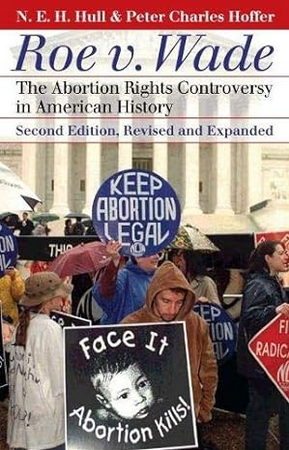
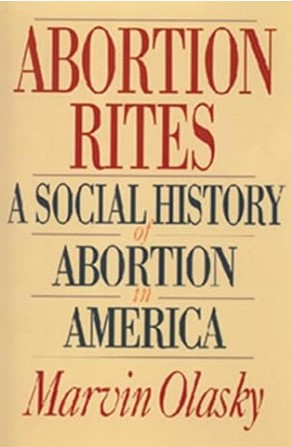
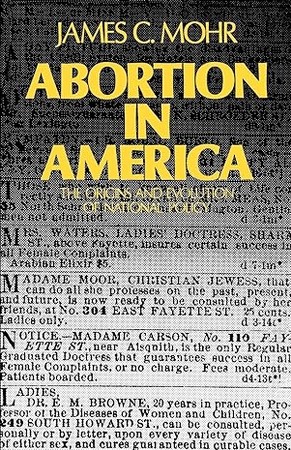

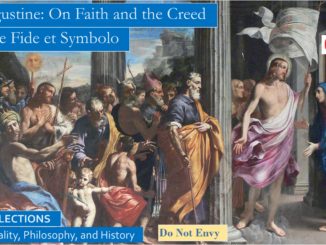
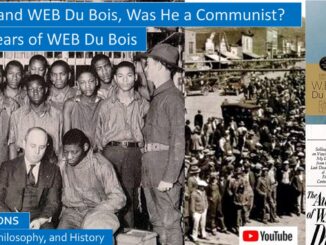
2 Trackbacks / Pingbacks